14 Surprising Things You Think Can Be Recycled But Actually Can’t Be
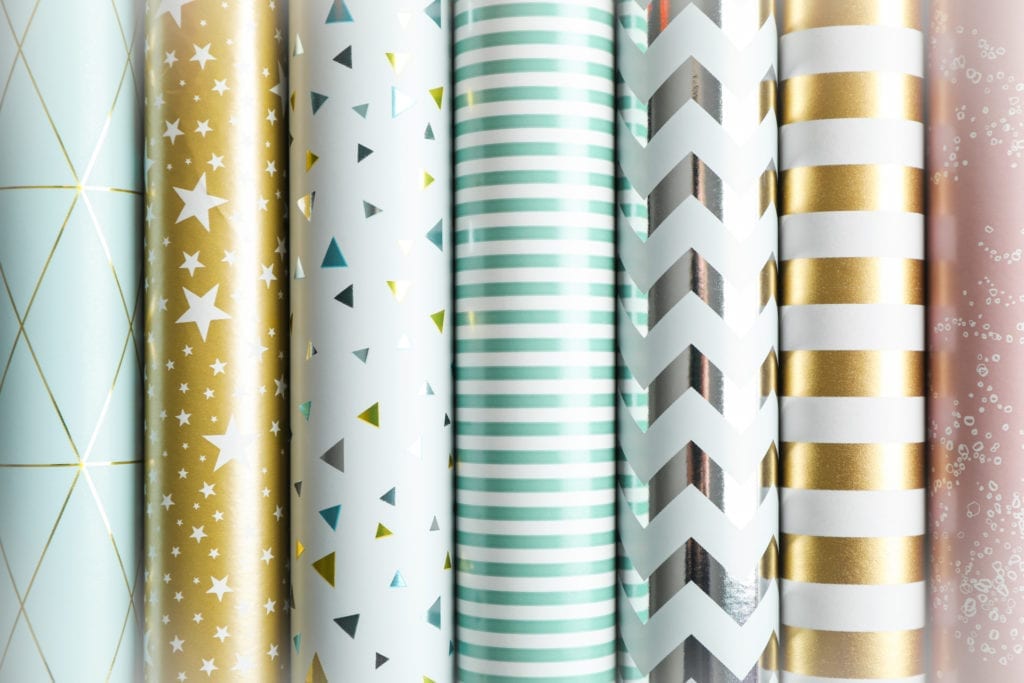
You’d think that recycling would be a simple process. You take your recyclable beverage containers to your favourite local bottle depot (hello!), they sort the recyclables for you, you get paid, and that’s the end of it.
It sounds so easy!
Well, it’s not as easy as you’d think – there are some things that you might think are recyclable but actually aren’t.
In fact, a lot of the items you find in your home might not be recyclable because they contain trace amounts of metal or certain plastics.
What’s worse though, is if you try to recycle one of these items, they might end up contaminating the rest of the recyclables when mixed inside the container – resulting in the whole lot being thrown away at the recycling plant! This is called wishcycling and can be incredibly harmful to our environment and to the recycling industry.
Today we’re going to help you figure out what items in your home can’t be recycled, even though it looks recyclable. Here’s a list of 15 surprising things you think are recyclable but actually aren’t.
1. Food Contaminated Cardboard
Food is great. Takeout is even better. But that delicious pizza you had last weekend probably came in the usual cardboard box. You know that cardboard is recyclable, but this box, thanks to that gorgeous pizza you had, is covered in grease, oil, and contaminated with food waste. Did you know that around 25% of recyclables are contaminated every year?
There are probably bits of stubborn pepperoni stuck to the bottom and strings of once-yummy cheese lingering in the corners. Because of this, that cardboard box, despite being a recyclable material, can no longer be recycled.
Grease and food waste can damage recycling equipment or contaminate other recyclables. A few crumbs are okay, but if your box is saturated with grease, then pop it in the trash, far away from your recycling.
It’s not just greasy pizza boxes you have to look out for, though. The same can be said for the paper or plastic containers that once held your mouth watering Chinese takeout. These containers can’t be recycled if they’re covered in hoisin, teriyaki, or any other kind of delicious sauce.
If the container is cardboard or paper (with no weird coating on it), it can be composted. If it’s plastic, then clean it and reuse it! You can also recycle it if it’s spotless and free from any greasy stains.
2. Plastic Lids
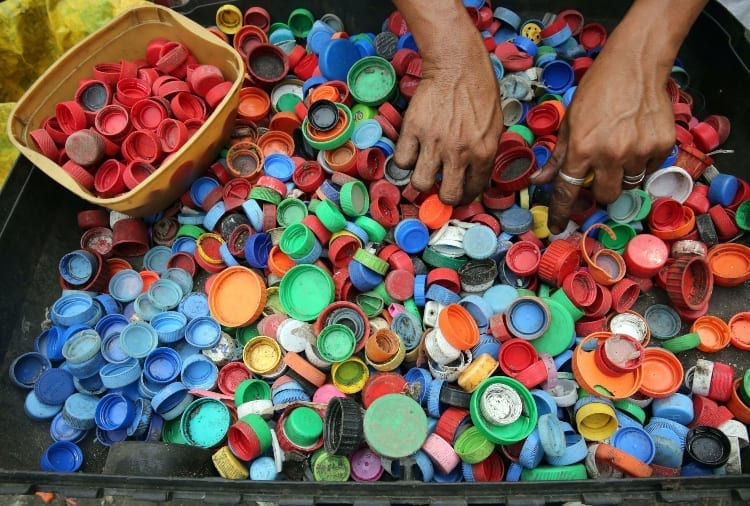
Water bottles are well known for being recyclable, right? You see recycling centers everywhere encouraging people to recycle their plastic bottles after they’ve finished consuming whatever drink was inside.
But did you know that the lid of a water bottle might not be recyclable?
We know, shocking!
But yes, water bottle caps actually can’t be recycled, most of the time anyway.
Water bottle lids and similar container lids are made from polypropylene or plastic #5, which usually can’t be recycled in the same way that the bottle part can.
To make sure that your bottle lid can’t be recycled, be sure to read the print on the side of the bottle to see whether the lid is recyclable or not.
3. Packing Peanuts
Packing peanuts are not and never will be recyclable. They might look cute and friendly, and they keep our packaged goods safe, but they’re actually quite harmful to the environment.
These little squishy foam packaging peanuts are made of expanded polystyrene, so they can’t be recycled. If you receive a package full of these foam delights, then consider reusing them instead of shipping them off to be dumped into a landfill or eaten by a wild animal.
A lot of commercial shipping services will also collect and reuse clean packing peanuts from you. You can even use them to send out your own packages instead of buying new ones.
Just because something isn’t recyclable doesn’t mean you can’t reuse it!
4. Styrofoam & Polystyrene Containers
Styrofoam or polystyrene containers are a big no-no when it comes to recycling.
According to the City of Calgary, this includes:
- Egg cartons
- Foam coffee cups
- Foam plates & fast food containers
- Foam meat trays
These items aren’t just unrecyclable. They also don’t biodegrade in landfills and take up to 500 years to decompose. If you don’t dispose of these correctly, you’ll be adding to the mass of waste that’s building up in our environment.
Many restaurants and brands have moved away from using this type of packaging, which is helping, but we can always do better. Think about doing the same by investing in a reusable travel cup for your morning coffee.
5. Plastic Straws & Utensils
Plastic utensils and disposable straws are some of the worst products you can buy because they’re not only unrecyclable, but also damage wildlife when discarded and thrown in the trash.
Plastic straws and utensils contain polystyrene or plastic #6, a plastic material that costs a lot to recycle. Because of its expensive recycling cost, not many recycling plants will accept these kinds of plastic items.
Before throwing your plastic straws and utensils away though, consider using them for some DIY projects with the kids.
Or, alternatively, you could buy some reusable straws and utensils, so you don’t have to contribute to the build-up of plastic in landfills.
6. Plastic Bags & Plastic Wrap
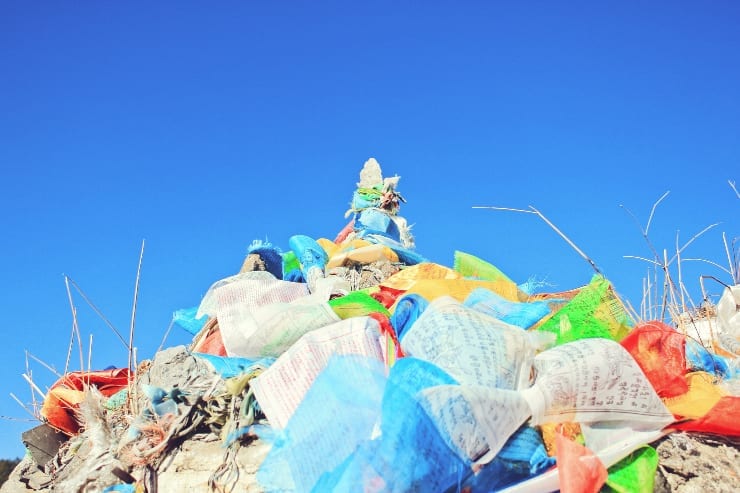
Plastic bags and plastic wrap is a tricky one.
If they are a stretchy plastic (like a grocery bag) then yes they can be recycled!
BUT only if you bundle them all together inside of another stretchy plastic bag and tie closed. Because these items are so lightweight, they often get tangled or clogged in the machinery at recycling centres, potentially damaging them. Combining all of your plastic shopping bags, sandwich bags, plastic wrap, etc into a single plastic bag allows the workers at the recycling plant to separate them for recycling.
Plastic bags and plastic wrap that cannot be recycled are ones that do not stretch, such as cereal, cracker bags or cellophane.
Even though shopping bags are in fact recyclable, we should still make an effort to try and avoid using them. Keep this in mind the next time you’re getting your shopping done. Opt for either a reusable bag or a compostable paper bag that some stores offer.
Some grocery store chains will allow consumers to either reuse the plastic bags, or they’ll have collection bins for torn bags. Thrift stores also usually accept donations of plastic shopping bags to reuse for their customers’ purchases.
7. Hardcover Books
Books are made of paper, so they’re entirely recyclable, right?
Actually, just because books are full of recyclable paper, the whole book might not be completely recyclable, especially if it’s a hardcover book.
Hardcover books contain components that aren’t paper, and they can’t be recycled at your local recycling plant.
So, when you’re recycling your old books, remove hardcovers before tossing that novel into the recycling pile.
You could also donate your unwanted books to thrift stores or Calgary also has plenty of neighbourhood library boxes where neighbours can swap books! You might have read it a hundred times, but somebody out there might get more use out of it. This is especially true for college books. If you’ve got a pile of chemistry books or law books, don’t recycle them! Instead, see if any new students are in need of those books. School books are so expensive, so be sure to offer them to people who need them before tossing them out.
8. Shower Curtains
Shower curtains are plastic, so we understand the confusion when people think they can recycle them, but they’re actually made with PVC, making them difficult to recycle.
There are many chemicals used in the manufacturing process of PVC which makes it hard for items containing PVC to be broken down and recycled.
Don’t lose hope though!
Your old shower curtain can be used for other things. Give it new life as an outdoor tablecloth or as liners for your drawers. You could even cut it up and let your kids use it in their next art project.
9. Waxed Paper & Butcher Paper
Paper is in the name so it must be recyclable, right? Wrong.
These items can’t be recycled because they’re usually covered with a coating that contains wax, meaning they won’t break down properly when being recycled.
Some other products that can contain this wax coating include things like frozen food boxes. An easy way to tell if the box contains wax is to tear it. If you see cardboard as well as a plastic-type lining then it cannot be recycled. If you do not see a plastic layer, then throw it in the recycling bin.
Parchment paper on the other hand cannot be recycled either, but according to the City of Calgary you can throw it in your compost bin.
10. Bubble Wrap
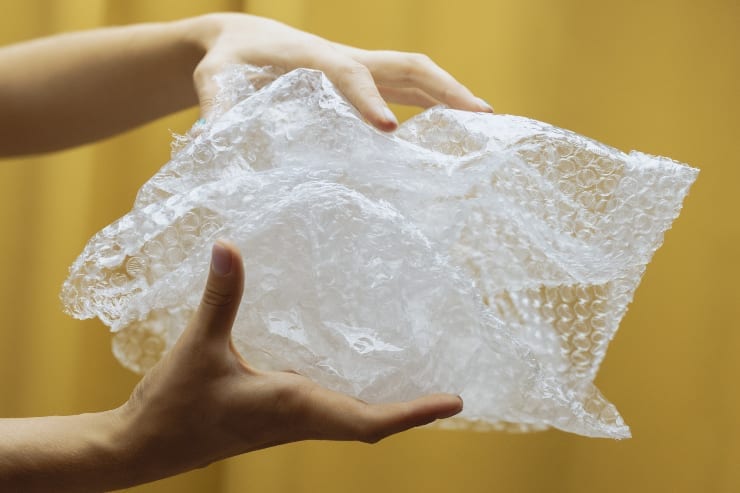
Just like stretchy plastic bags and plastic wrap, bubble wrap can’t be recycled on it’s own because of how lightweight and airy it is. However, the same rules apply here and you can recycle it as long as you bundle it into a single plastic bag full of your stretchy plastic items!
Instead of throwing your bubble wrap away though, why not reuse it next time you’re sending a package to a family member or friend? It’ll make sure nothing gets damaged, and you won’t have to buy new bubble wrap or packing peanuts.
11. Specialized Paper
Specialized paper is any paper that has a metallic, glittery, or velvet feel to it. You know, the special paper you get at the back of those expensive craft shops.
This paper is often found in:
- Wrapping paper
- Gift bags
- Greeting cards
- Scrapbook paper
- Anything else adorned with sparkly textiles
The best way to deal with this kind of stuff is to reuse it as much as possible. If you received a gift for your birthday wrapped in paper covered in glitter and velvety print, then try to reuse it next time you need to wrap something.
As soon as you’ve exhausted the lifespan of your specialized papers, save them for some neat art projects for your kids!
12. Clothes Hangers
You can’t recycle clothes hangers.
Clothes hangers have an odd shape to them, and they can get caught on recycling equipment and cause a lot of damage.
Plastic clothes hangers are also made with a mix of materials, so they can’t be recycled with mainstream recycling.
What about wooden hangers? Wood’s good, right?
Nope! Wood clothes hangers are usually made of treated wood which can’t be recycled at all due to the chemicals they’ve been treated with.
If you’re looking for somewhere to dispose of your old hangers, consider donating them to thrift stores or dry cleaners. If you’ve got broken hangers, then toss them in the trash or try to repurpose them.
13. Shopping Receipts
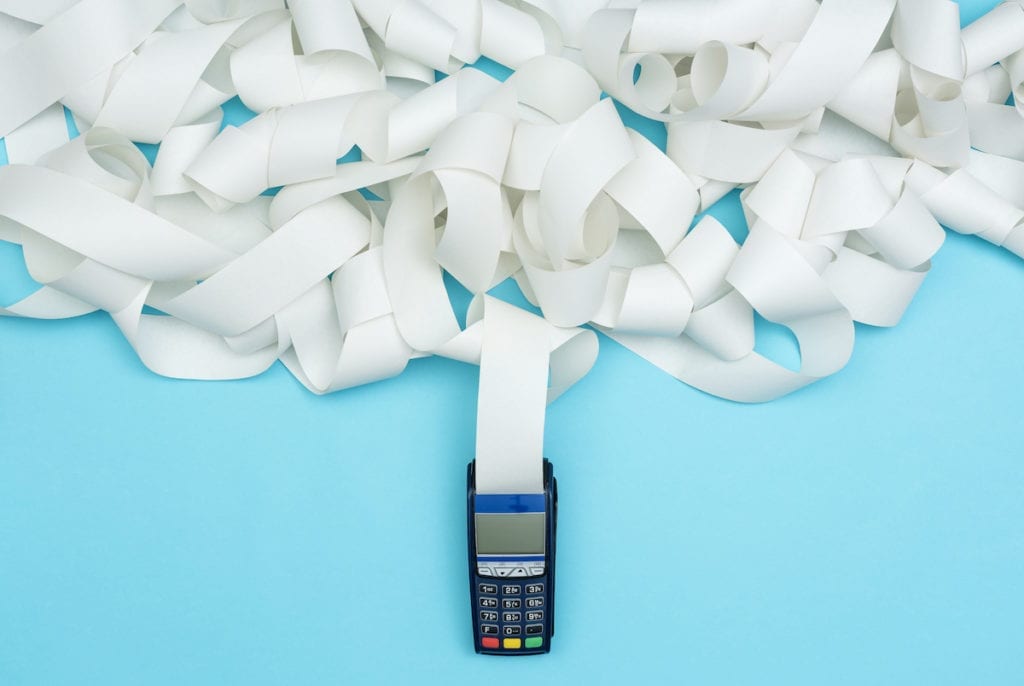
Receipts are made from thermal paper, and it contains BPA, which can’t be recycled.
Some receipts can be composted, but to avoid any issues, it’s better to just ask for no receipt or look for an electronic receipt where possible.
You could also use your receipts for games with your kids. Children love to play shop, so give them some of your old receipts to use when they’re playing pretend.
14. Soft Plastic Packaging
Soft plastic packaging is usually found on bagged salads, snack wrappers, and candy wrappers.
Chip bags, cookie wrappers, and candy bar wrappers are usually all made from soft plastic packaging. Most recycling centers won’t accept them.
Some specialized places will recycle it for you, but it’s better to toss it in the trash than have it ruin a recycling batch at a recycling center.
Phew, what an eye-opener!
We hope that you’ve learned something new by reading our list of things that you can’t actually recycle.
Did anything surprise you?
If you’ve got a container that you’re unsure about whether or not it can be recycled at a bottle depot, then feel free to either drop by Sage Hills Bottle Depot or give us a call.
Related Posts
Top 10 Things You Didn’t Know About Bottle Recycling
Sorting Out The Facts You might feel like recycling is a small act but we think it’s a pretty noble…
Top 5 Reasons to Visit Sage Hill Bottle Depot
Caring for the Community since Day 1 Oh, hello recyclers and environmental enthusiasts of Calgary! If you’re looking for an…
Your Trusted Partner for Recycling Solutions in Calgary
Assisting Small Businesses With Commercial Recycling Have you been looking for dependable recycling services in Calgary? We’re here to expedite…



